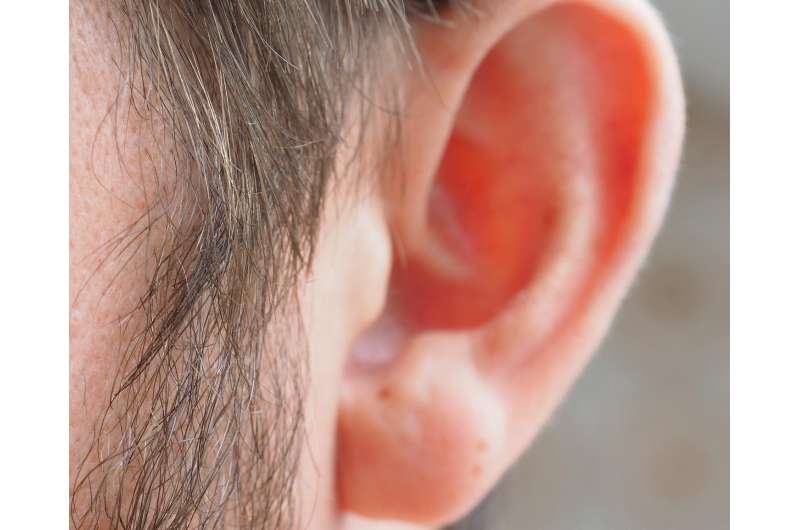This article has been reviewed according to Science X's editorial process and policies. Editors have highlighted the following attributes while ensuring the content's credibility:
fact-checked
peer-reviewed publication
trusted source
proofread
Hearing loss is associated with subtle changes in the brain

Hearing loss affects more than 60 percent of adults aged 70 and older in the United States and is known to be related to an increased risk of dementia. The reason for this association is not fully understood.
To better understand the connection, a team of University of California San Diego and Kaiser Permanente Washington Health Research Institute researchers employed hearing tests and magnetic resonance imaging (MRI) to determine whether hearing impairment is associated with differences in specific brain regions.
In the Journal of Alzheimer's Disease, researchers reported that individuals enrolled in this observational study who had hearing impairment exhibited microstructural differences in the auditory areas of the temporal lobe and in areas of the frontal cortex involved with speech and language processing, as well as areas involved with executive function.
"These results suggest that hearing impairment may lead to changes in brain areas related to the processing of sounds, as well as in areas of the brain that are related to attention. The extra effort involved with trying to understand sounds may produce changes in the brain that lead to increased risk of dementia," said principal investigator Linda K. McEvoy, Ph.D., UC San Diego Herbert Wertheim School of Public Health and Human Longevity Science professor emeritus.
"If so, interventions that help reduce the cognitive effort required to understand speech—such as the use of subtitles on television and movies, live captioning or speech-to-text apps, hearing aids, and visiting with people in quiet environments instead of noisy spaces—could be important for protecting the brain and reduce the risk of dementia."
McEvoy designed and led the study while at UC San Diego, in collaboration with Reas and UC San Diego School of Medicine investigators who gathered data from the Rancho Bernardo Study of Health Aging, a longitudinal cohort study of residents of the Rancho Bernardo suburb in San Diego that launched in 1972. For this analysis, 130 study participants underwent hearing threshold tests in research clinic visits between 2003 and 2005 and subsequently had MRI scans between 2014 and 2016.
The study results show that hearing impairment is associated with regionally specific brain changes that may occur due to sensory deprivation and the increased effort required to understand auditory processing stimulations.
"The findings emphasize the importance of protecting one's hearing by avoiding prolonged exposure to loud sounds, wearing hearing protection when using loud tools, and reducing the use of ototoxic medications," said co-author Emilie T. Reas, Ph.D., assistant professor at the UC San Diego School of Medicine.
More information: Linda K. McEvoy et al, Elevated Pure Tone Thresholds Are Associated with Altered Microstructure in Cortical Areas Related to Auditory Processing and Attentional Allocation, Journal of Alzheimer's Disease (2023). DOI: 10.3233/JAD-230767





















